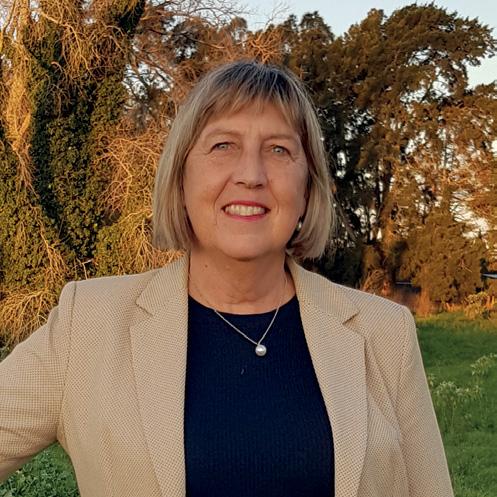
4 minute read
Succession – having the conversations that matter
Succession planning can be tough for farmers. For some it’s so tough they choose either to ignore it altogether or tell themselves they will deal with it “closer to the time”.

Advertisement
But when is “the time”? Deciding this requires contemplating what life will be like off the farm, and reconciling possibly significant differences of opinion about the best way to pass on assets.
This can lead to anxiety, stress, and the temptation to put dealing with succession back in the too-hard basket, essentially kicking the can down the road. Frustration can be felt by those sitting in the wings as they contemplate not only the potential loss of a key family member, but also what that will mean for the farm and for them.
There is no doubt that it’s always better to be calm and in control when making decisions. Having the issue forced due to ill health or death, when time is not a luxury you can afford, may mean that options have become limited.
The greater the delay, the more difficult the succession planning process will become. Today there are plenty of ways you can access help and make the process run smoothly –front-footing it and having conversations early is key.
It’s never too late to start this process, but the earlier you start, the easier it is.
Succession in the past appeared pretty simple; the son or sons took over the running of the farm … eventually.
Equity in value was generally not considered, and fairness was more a matter of good luck than good management. But as I work with more and more families and have the privilege of hearing their stories, it is clear that this wasn’t always easy for those involved. Often uncomfortable feelings remain just below the surface as people reflect on past generations and their decisions. The conversations that mattered either weren’t had or did not include all interested parties.
Farming families today are confronted by a scope and pace of change that is greater than ever before. The environment, impacts of technology, shifting trade dynamics, climate change, rapidly changing public attitudes, and complications of COVID on labour markets are all factors demanding a planned and strategic approach by farming families and agribusiness alike.
Succession planning is no different –determining what is next for the farm, parents, farm assets, and the next generation also requires a strategic approach.
I’m happy to say that the, “If I leave this place, it will be feet first”, school of thought is less of a barrier to successive generations than it once was. Current farm owners are far more likely to view their next stage as an opportunity to have some freedom and do something different, possibly off-farm.
Some see that next stage as a reward for their many years of hard work. Lifestyles today offer plenty of active and passive leisure pursuits – particularly as we get older. Of course, there are some who remain unsure of what to do in their next stage of life, and some who may feel they have few options.
The challenge – how to exit?
The average age of farmers creeps higher, and they look over their shoulders at the younger generations waiting for their chance. The opportunity to get succession planning right is more available than it has ever been. Professional support exists, and its cost is negligible relative to the value of the assets being discussed, but so many farmers still find asking for help a challenging step.
When thinking about succession, there are three common objectives:
1. Financial and emotional security for the parents
2. A flexible and resilient plan for the succeeding child
3. Fairness to the non-succeeding children (Blackman, IR. 2011)
A robust succession plan needs to start with the end goal in mind, and it requires flexibility, openness, and a willingness to communicate. It is often the intangibles, for example the sense of legacy, that will play a critical factor – as does family harmony and unity.
While there are many parts to this jigsaw, at the core of this process is the families and people involved. Every family is different and they bring various skills and challenges to the succession table. Starting the conversations that matter early is pivotal, and can make a big difference later on.
All families have their own dynamics and power hierarchies, which can sometimes create roadblocks for those trying to selfmanage the process.
Succession is not an event, it’s a process, and one that can be significantly eased by involving your team of professionals. For some families the process can take years. Seeking independent facilitation will make for a coordinated approach and smooth conversations, and it will provide relevant information to aid in a robust process and good decision-making.
Assumptions, and differing ideas about fairness and equality can cause a power of grief when it comes to succession.
While a farm is an asset, and possibly benefits from intergenerational investment (like irrigation or the purchase of a new farm), it will also likely carry debt and still need to provide for Mum and Dad as they look to exit. The clarity of knowing what is financially available and what is possible removes any assumptions for all involved, and creates another foundation piece toward successful succession.
Conversations help to align expectations and clarify areas of tension. The part that personal values play in achieving this alignment is critical. What do you as owners of the farm value? What do your children and their partners value? Understanding this establishes common ground, builds trust, and opens the door to setting a clear and agreed pathway, and sometimes exciting new horizons.
With the right team alongside you there are many more opportunities than challenges. A good business with a good foundation for succession can lead to amazing next generation stories, leveraging on the foresight of past generations and a smooth transition.
Equally, a family that is clear about what’s possible and chooses to explore the sales process is also advantaged by working together on a transition to new beginnings.
Every farm succession journey is different and what makes them unique is the people –not the farm, nor the farm assets. If you focus on getting the people part right, what’s needed regarding asset management will become abundantly clear. Most importantly, families will be united in a common vision for the future, and everyone will look for ward to getting together for your next Christmas lunch!
Rural Coach specialises in the independent facilitation and development of succession pathways for farmers, business owners, successors, and families.
www.ruralcoach.co.nz









